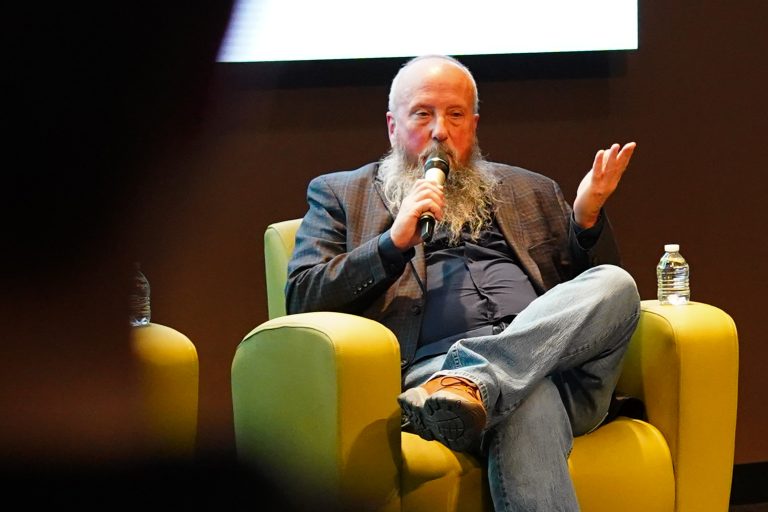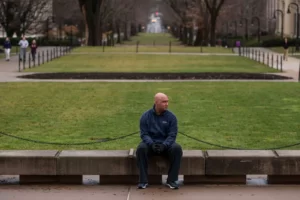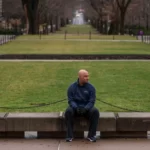The top prize in the Regional/Local category of the 2023 Barlett and Steele Awards was given to a collaborative and multi-media investigation of a silicosis cluster that had emerged in Southern California by 2022. After receiving a tip about rising cases of the rare, but deadly, lung disease among Latino artificial-stone workers around Los Angeles, Public Health Watch’s Jim Morris and Leslie Berenstein Rojas partnered with LA-area public radio station KPCC/LAist and Univision’s local Spanish-language station to investigate the causes, effects, and potential solutions.
Their joint effort not only shed light on the epidemic itself but also galvanized legislative efforts to strengthen labor protections in the popular artificial stone market.
Jim Morris and his co-founders at Public Health Watch together boast over 140 years of journalistic experience, even though the non-profit platform itself is relatively new – just going on two years old. So when Texas-based Public Health Watch received a tip about the silicosis cluster, Morris knew local support in Southern California would be imperative to get the story.
“A lot of credit is due to Univision, because they provided Spanish-speaking coverage that allowed us to actually reach local workers and their families,” Morris said.
A collaborative effort leads to a wider reach
A perfunctory look at the LA-area silicosis cluster revealed that all of the cases were found in young to middle-aged day laborers working with the artificial stone slabs that have become so popular in interior décor. In Southern California, many of these laborers are migrant workers who speak Spanish as their first – and sometimes only – language, which is why Univision’s ability to reach that population in their native language was crucial to the investigation’s success.
This cooperation wasn’t just vital for the fact-finding stage of the investigation. Before the recent clusters, silicosis had not been a prevalent problem for decades, due to new techniques for stone masonry and labor protection standards. However, this meant that California workers experiencing respiratory symptoms in 2022 had no reason to suspect silicosis. And silicosis, unlike most other respiratory irritations in average, healthy, young men without preexisting conditions, can rapidly incapacitate and kill sufferers.
“It’s a death sentence. Many won’t survive more than a few months, maybe a year, without a double-lung transplant,” Morris explained. “Even the ones lucky enough to get a lung transplant, that doesn’t guarantee a very long life.” Barring immediate complications like infection and rejection, a lung transplant only lengthens a silicosis patient’s life expectancy by about 10 years, at best.
Indeed, Morris added that one of Public Health Watch’s primary subjects, 36-year-old silicosis patient Juan Gonzalez Morin, who was featured on the front page of the initial story in December 2002 has since passed away. The original caption read, “Without a lung transplant he may not live more than a year.”
Morris noted their team’s indebtedness to the treating physicians who participated in the reporting, especially pulmonologist Dr. Jane Fazio who allowed the team to reach more potential patients, and ultimately saved lives. “Doctors can be reticent about going on the record,” Morris explained, “but Dr. Fazio was willing to talk from the beginning.”
Report leads to emergency rule
California’s silicosis outbreak hasn’t been completely stemmed, but the investigation made a measurable impact by reaching the affected population and triggering regulatory protections for future workers.
In the beginning, Morris said “the problem was less with regulatory protections existing, and more with finding and reaching all the little shops” where artificial stone is cut; then, finding all the workers employed by those shops, and so on. Many of the “shops” are tiny, unregistered operations in strip malls or garages, and many workers are undocumented and/or lack health insurance.
Nevertheless, the investigation has inspired regulatory progress, too. After this report, the state of California passed an emergency rule governing fabrication shops that use silica. Los Angeles County also stepped up workplace inspection efforts and began working with federal legislators on ways to monitor artificial stone production nationwide.











